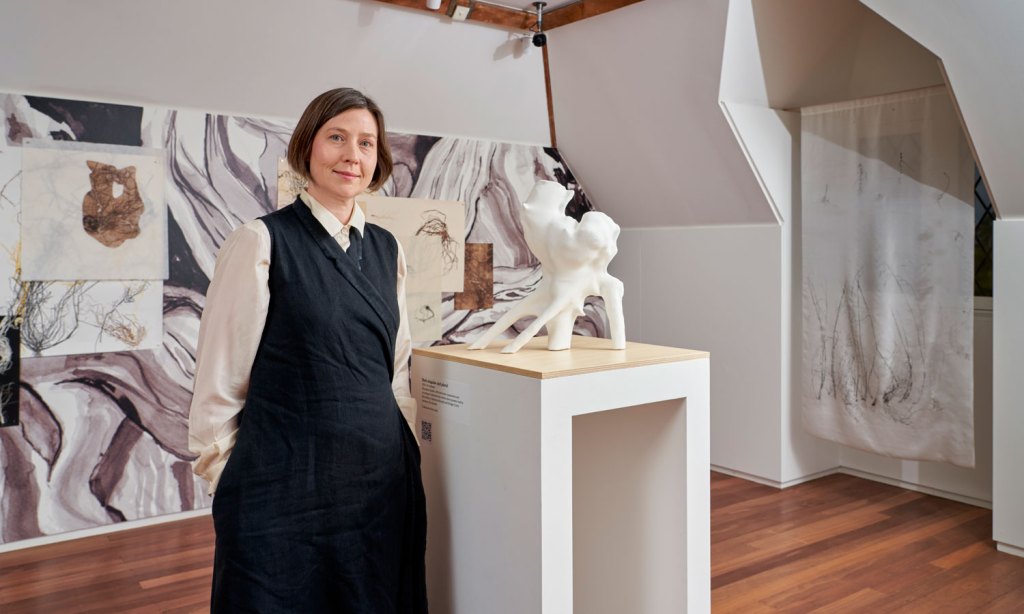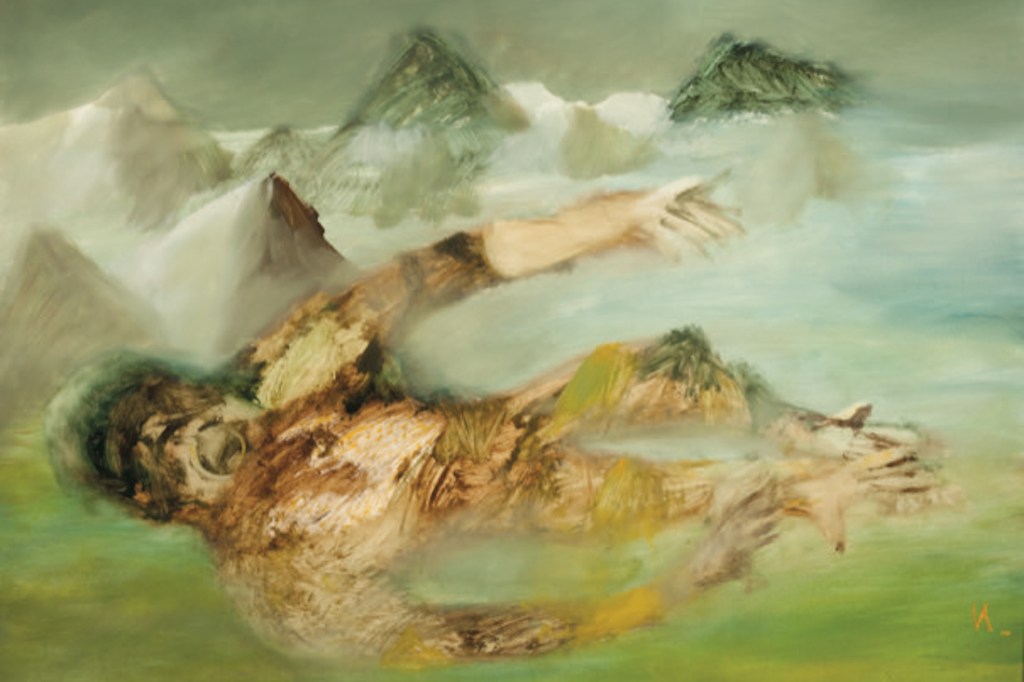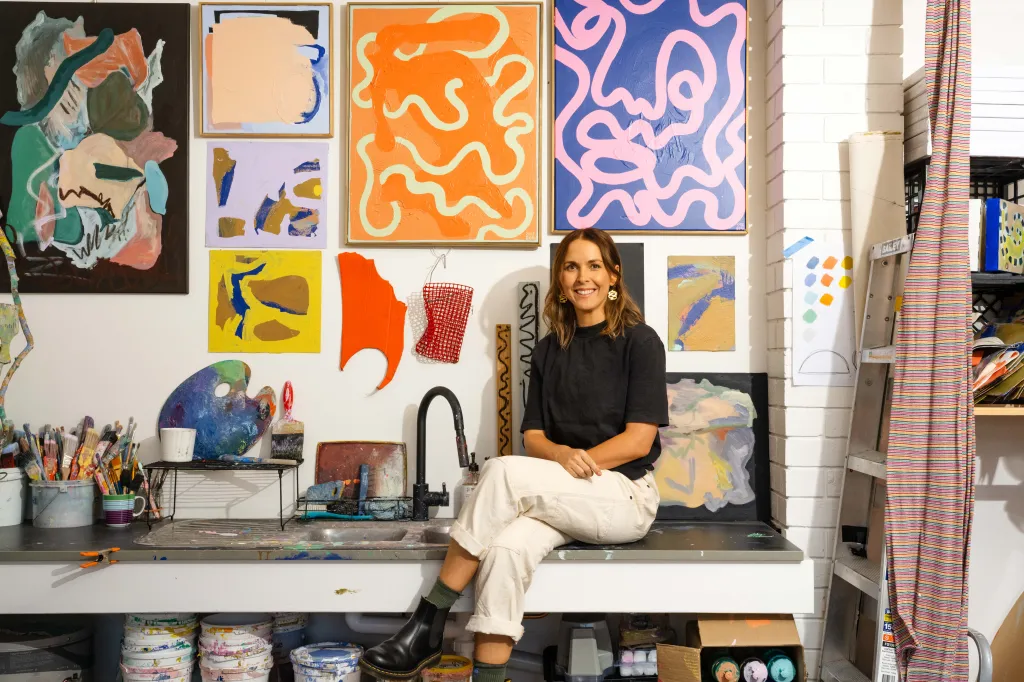Step into Bridget Currie’s world – and the world of Carrick Hill
Visitors are encouraged not just to look but also to listen to and even touch some of the artworks Bridget Currie has created in response to the historic house and grounds at Carrick Hill, including a ‘portable painting’ that serves as a picnic rug.

Bridget Currie: each one a world
Carrick Hill
Bridget Currie’s exhibition, each one a world, invites audiences to interact with her work and explore our relationship to nature. Co-presented with the Art Gallery of South Australia (AGSA) for the Nature Festival, the exhibition at Carrick Hill celebrates the stunning house and its expansive gardens. Through works developed over two years, Currie presents a series of varied responses to the environment.
Featuring printed images, sculpture, sound, furniture and even a picnic rug, each one a world is curated by Maria Zagala, AGSA’s curator of prints, drawings and photographs.

Bridget Currie, Each one a world: folding screen, 2024, Carrick Hill. Photo: Sam Roberts
The genesis for this series began during COVID, when Currie was on a walk – one of the few activities allowed during lockdown – and she started documenting and photographing different types of grass.
“I’ve always had an interest in meadows and different types of ecologies that are very varied,” she says.
“Grass somehow just felt so poignant at the time. The idea that everything is alone together. It’s all individual, but it’s collective at the same time.”
Works such as Each one a world: folding screen, a collaboration between Currie and furniture designer Dean Toepfer, have been created as a direct response to Carrick Hill. Inspired by the William Morris screen featured in the house’s collection, the piece sits on the landing of the impressive “Waterloo Staircase” and blends seamlessly into the tones of the wood.
Several pieces have been created by Currie with the premise that the audience will interact with them. She has made sculptures from a variety of materials and included soundscapes composed in response to Carrick Hill’s lush garden; these are designed to be held and listened to in the gallery and on certain days visitors can take them into the garden. Currie has also designed a picnic rug that can be borrowed by visitors and used in the gardens.
“It’s an important part of my practice; it’s about intimacy. That it’s okay for people to touch things sometimes”, explains Currie.
“I feel that particularly throughout COVID, there was an intense lack of touching things. But also, in general, we experience lots of things through a screen.”
Subscribe for updates

Bridget Currie’s Portable painting, 2024, in the gardens of Carrick Hill. Photo: Sam Roberts
During her residency at Carrick Hill, Currie spent much of her time researching meditation. She invited the group Saint John’s Spiritual Church to visit the house, where they performed an energy reading and channelled spirits. Currie is interested in the unseen and what can occur in an individual’s mind. This is where the title of the exhibition stems from: the idea that everyone’s brain is a complete world in itself – together but separate.
Each one a world highlights Currie’s ongoing interest in how humans interact with nature and how we make meaning of the world. The exhibition not only gives audiences the opportunity to step into Currie’s world but also the world of Carrick Hill created by Edward and Ursula Hayward many centuries ago. I highly recommend taking the time to explore the expansive gardens, eclectic house and Currie’s thoughtful responses to both.
Bridget Currie: each one a world is showing at Carrick Hill until January 5.

